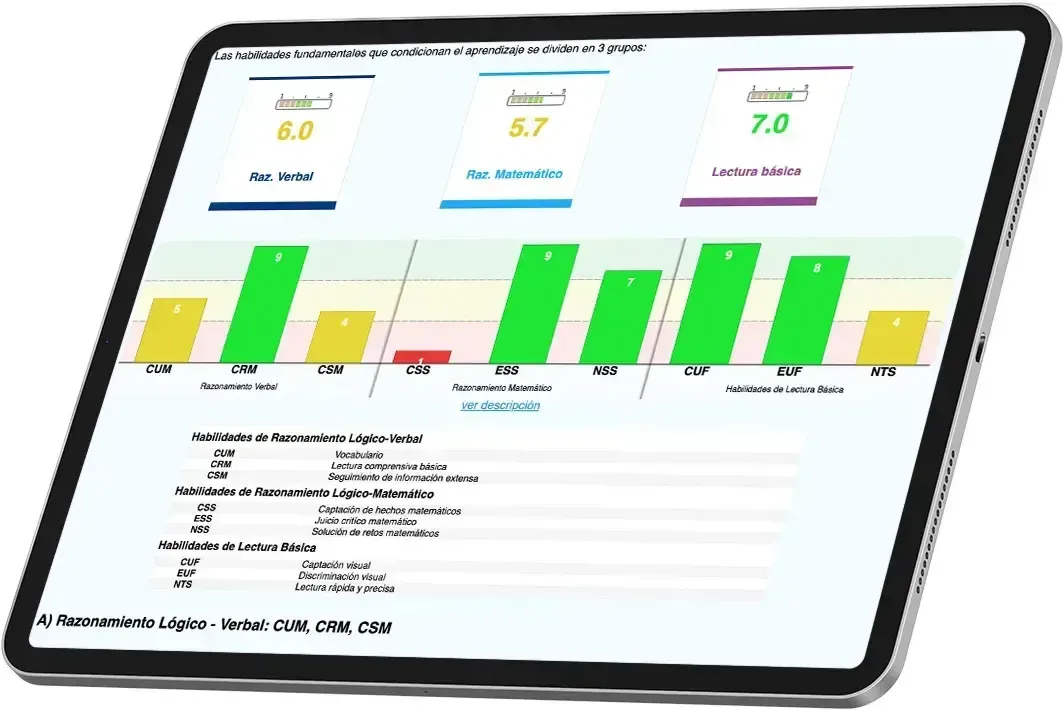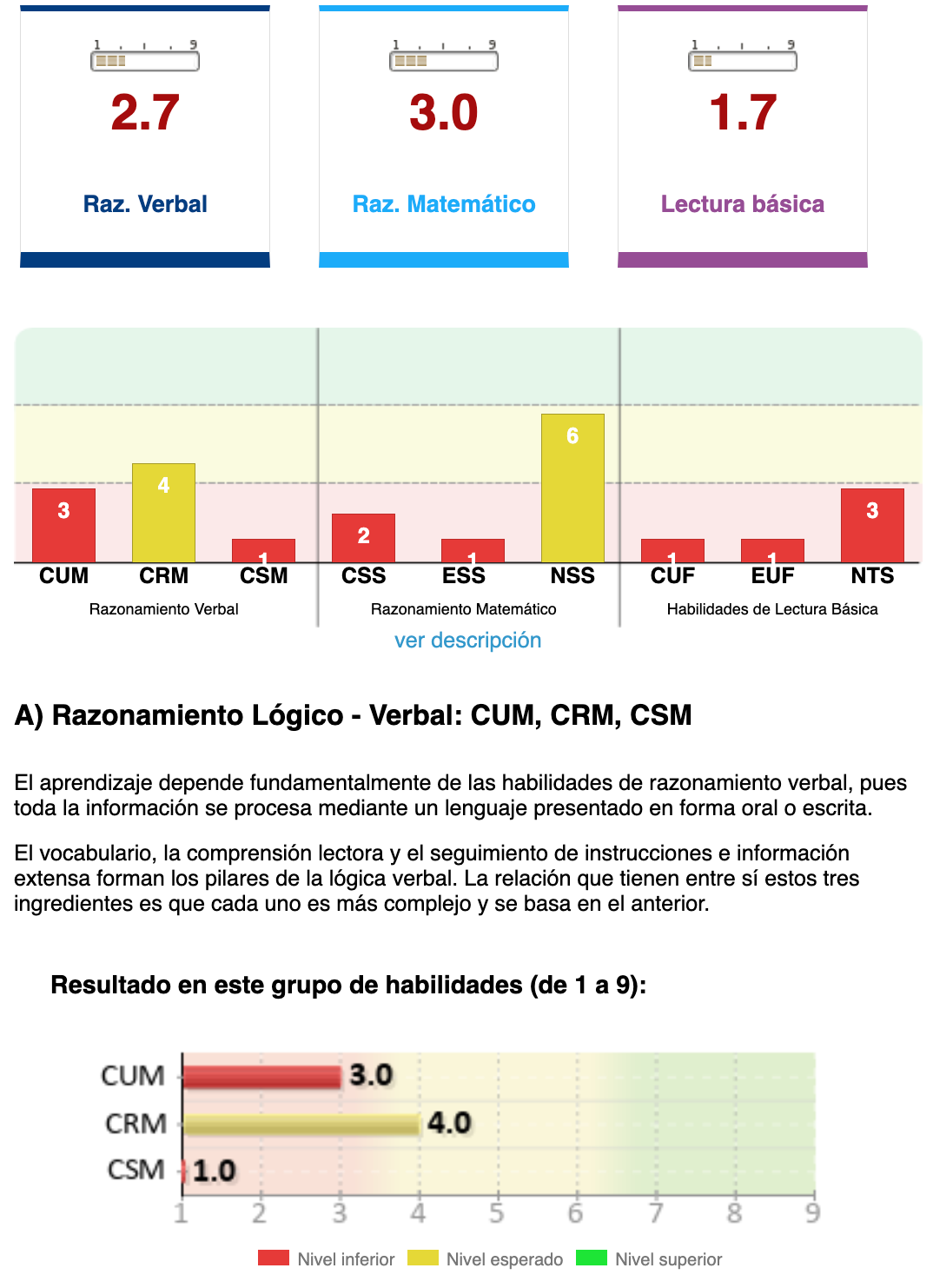Habilmind > Related to students' academic performance > Fundamental Skills 3
Fundamental Skills 3
Cognitive analysis for children aged 9 and older
Analysis using a criterion-referenced test that measures the level of development of the 9 fundamental skills for learning.
✍🏻 Author: Isauro Blanco
ℹ️ Application: Collective and individual
🕓 Duration: 30 minutes
✅ Age of application: 9 to 18 years


.
What does your school get with this tool?
01
Allow
Laying the foundation for solid learning.
02
Propitiate
Timely intervention to promote skills.
03
Know
And enhance the cognitive development of each student.
04
Prevent
Early intervention would be key to the student's future.
05
Evaluate the impact
By re-application of the tool.
Problems you avoid (or mitigate) when you use Fundamental Skills 3
1. School failure: Early detection favors intervention to prevent learning problems from becoming chronic and thus provide an appropriate educational response.
2. Problems in reading mastery and comprehension: Reading is the basis of all learning, and difficulties in reading can affect performance in any subject, including mathematics. This tool can detect which skill or skills are not sufficiently stimulated to influence it and prevent it from impacting on your reading skills.
3. Problems in learning mathematics: Mathematics is often rejected because the origin of the difficulty is not identified and it is reinforced without taking into account what is hindering its understanding. Identifying the origin of the difficulty prevents the difficulty from becoming chronic.
4. Lack of motivation and low academic self-concept: A false belief of low ability due to low or insufficient academic performance directly influences intellectual self-esteem and, therefore, motivation. Becoming aware of their abilities, how they influence their performance and how they can be stimulated, fosters their perception of control over themselves and their motivation for change.
Through which platforms can you get this tool?
| Platform | User profile | Available | Far web |
|---|---|---|---|
| Habilmind.com | Directors and educational psychologists | ✅ | Login |
| Psicometra.com | Clinical psychologists | ✅ | Login |
| Universidatos.com | Higher education institutions | ✅ | Login |
| Idi.habilmind.com | Researchers from universities or research centers | ✅ | Login |
Description of the Fundamental Skills Test by Isauro Blanco
Video in which Isauro Blanco explains the Fundamental Skills test.
Links of interest
Why should we assess skills every two years?
The Fundamental Skills Test is a cognitive test that measures the development of intellectual skills necessary for the construction and incorporation of new learning. Read more
Should students be able to answer all questions correctly? When assessing cognitive or intellectual abilities, we must be aware that not all students will be able to answer all items or questions. Read more
Can academic performance not match test results?
Test scores do not always correlate with academic performance. Read more
Why might a student have a lower skill less developed than more complex ones?
For example, vocabulary (CUM) appears with a low result, basic reading comprehension with a medium result (CRM) and following extensive instructions (CSM) high. Read more
Try it for free, no obligation
Request access to the tool via the "Try for free" button so you can experience it first-hand.
(*) Free tests are available for schools, colleges and institutes, universities, clinical psychologists and researchers.


































